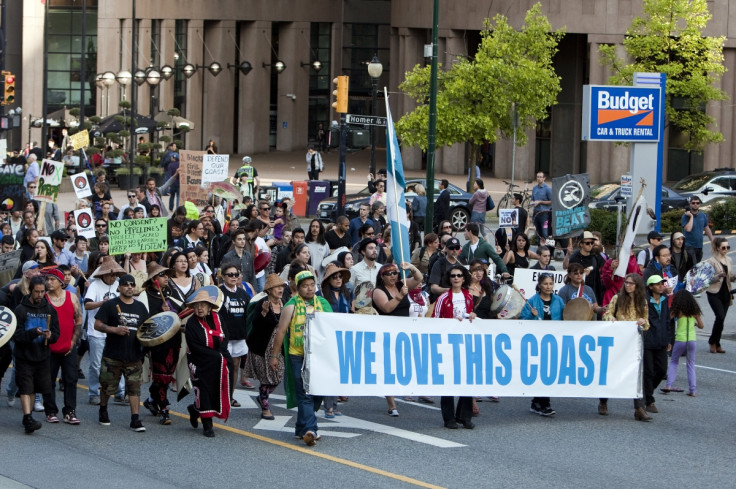Canada Pushes Ahead with Pacific Oil Pipeline Amid Environmental Protests

Canada is to push ahead with a C$6.5bn (£3.5bn, €4.4bn, $6bn) pipeline bringing oil to its Pacific seaboard despite strong opposition from environmental campaigners.
The Northern Gateway project was conditionally approved by Prime Minister Stephen Harper's government and will go ahead if the sponsor Enbridge meets the 209 criteria imposed by Ottawa officials.
In addition, Enbridge must meet five criteria imposed by the local government in British Columbia, with some analysts saying the conditions may be too arduous for the company to overcome.
The pipeline would have the capacity to carry 525,000 barrels of oil per day from the oil sands of Alberta to British Columbia, for export to Asian markets, with China likely to be at the head of the queue.
Harper implied that his hand was forced by the US delaying its decision on the Texas Keystone XL project, another controversial pipeline which would transport Albertan oil to the Gulf of Mexico, via the southern states of the US.
Harper expressed "profound disappointment" at the US's perceived lack of urgency and said it was in Canada's national interest to diversify the export destinations of its energy resources.
Currently, 97% of Canada's oil exports go to the US. As the US continues to bring its own energy supplies online online, officials may reasonably expect demand for Canadian oil to fall, but analysts feel the demand will stay strong, given the quality of Canada's product.
"The shale discoveries in the US shouldn't have much impact on Canada. The heavy crude which comes from Canadian tar sands is very different to the light sweet type which comes from US shale plays. As a result US imports of Canadian crude have remained strong which imports from those countries which produce light crude, such as Nigeria, have fallen off dramatically," Thomas Pugh, commodities economist at Capital Economics tells IBTimes UK.
Environmental Impact
Environmentalists took to the streets of Vancouver to protest against the 1,177km pipeline, which would traverse the Rocky and Coast mountain ranges en route to the port of Kitimat, British Columbia (BC).
The pipeline will cross the lands and watersheds of more than 100 indigenous communities and fears exist over the potential impact on BC's fisheries and tourism industries which employ more than 40,000 people.
"Canada is home to the world's longest coastline. We have a responsibility to protect the abundance of our coasts for future generations. As with human health, prevention is the best medicine. Enbridge's proposed tar sands pipeline to Kitimat poses serious threats to life and livelihoods on the intricately fjorded West Coast," said a statement on Greenpeace's website.
The leader of Canada's opposition New Democratic Party Tom Mulcair lashed out at Harper's decision to push the pipeline plans through, accusing him of acting as though "this is 1948".
Mulcair described the decision a "severe threat to social order, social peace", and told Harper: "You can no longer force pipelines from the top down.
Environmental group Nature Canada voiced doubts as to whether the project will ultimately go ahead, with spokesperson Paul Jorgenson telling local media: "The actual pipeline itself is going to carve a huge swathe across some basically untouched wilderness, but the tankers are going to be basically hair-pinning around islands in some very treacherous waters."
"In some cases the tankers might end up being just as risky if not more so than the pipeline. We know for a fact the pipeline has about a twenty-five percent chance of catastrophe, which when you think about it, is worse than Russian roulette," he said.
© Copyright IBTimes 2025. All rights reserved.






















